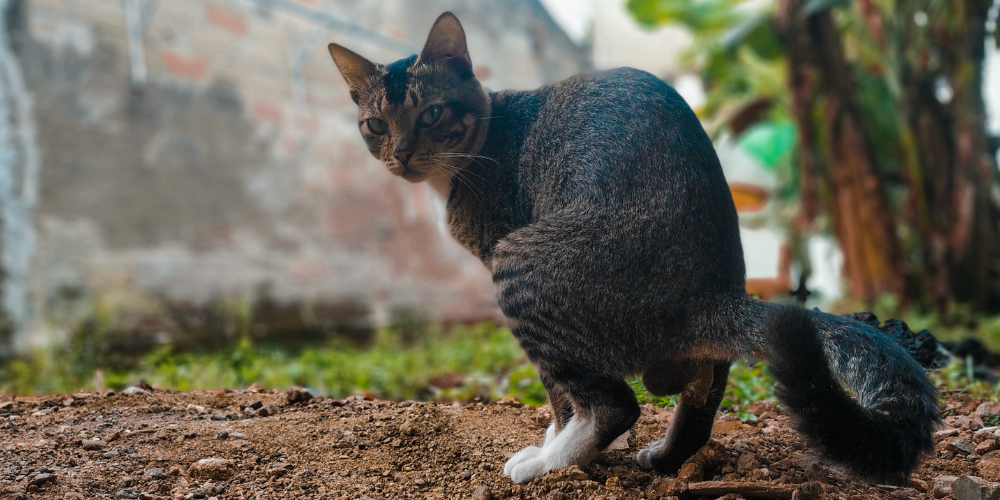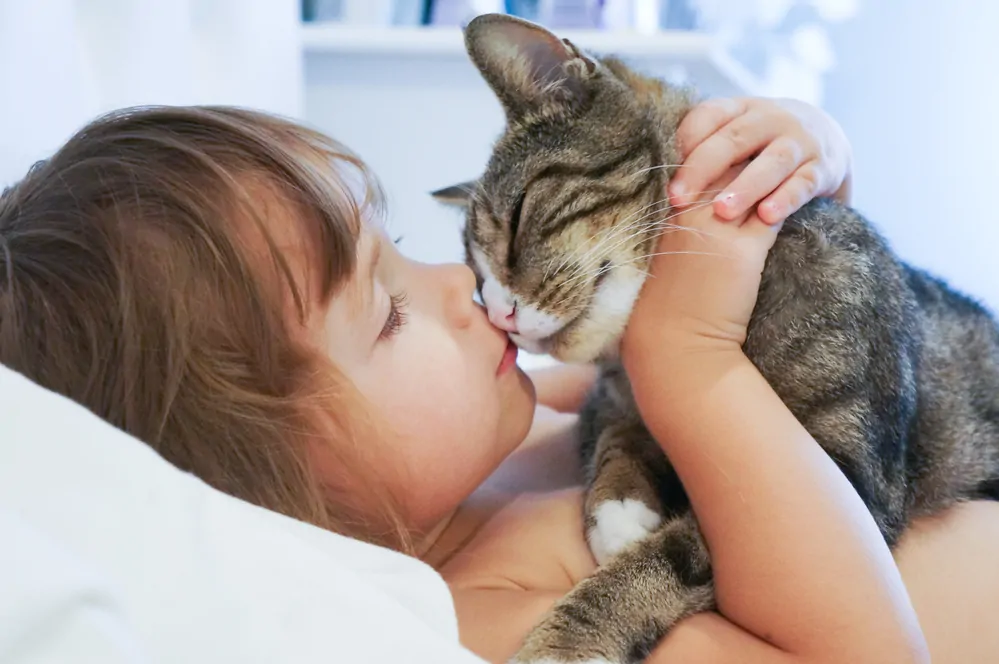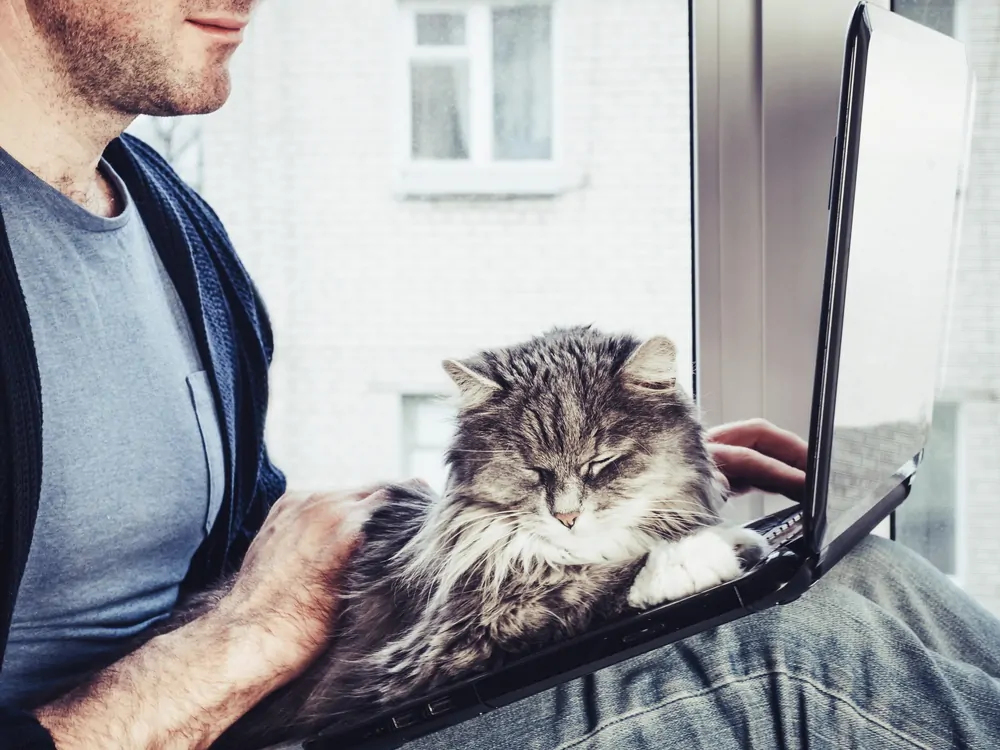Cats are considered clean animals due to the constant cleaning of their fur and burying their poop and urine deep into the litter box. But is it an act of cleanliness when they bury their waste?
Cats bury their poop to cover up their scent. This is done instinctively and is commonplace with wild cats. Subordinate cats bury their poop to avoid angering alpha cats, and a dominant cat will leave his uncovered. They also bury their poop to avoid detection from predators. House cats do the same.
When it comes to scents and instinctive behavior, the apple doesn’t fall too far from the tree between wild cats and domesticated cats. The instinct to cover up their poop is done for the same reasons, even though domesticated cats don’t share the same worries or threats as wild cats do.
Does Mother Cats Teach Kittens to Bury their Poop?
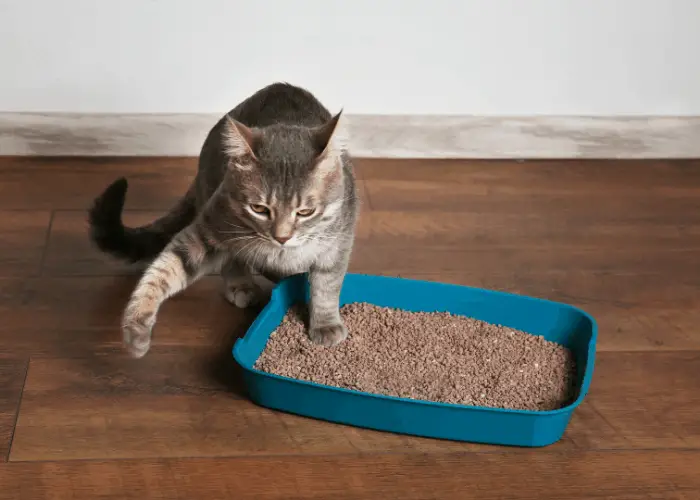
Naturally or out in the wild, no. Mother cats do not defecate anywhere near their young ones to avoid giving any predators reason to make a meal out of them. Cats out in the wild have this behavior incorporated into them through instinct, rather than training.
The same could be said for domesticated housecats. Sure, a kitten might follow a mother cat into a cat’s box out of curiosity, particularly after the owner just cleaned it out or dumped new litter into the box.
But as far as a mother cat teaching this behavior to its kittens, it’s merely assisting in promoting the right place to go- in the box. But that’s as far as it goes. Anything that goes on from there is all instinct.
Cats that Aren’t Litterbox Trained
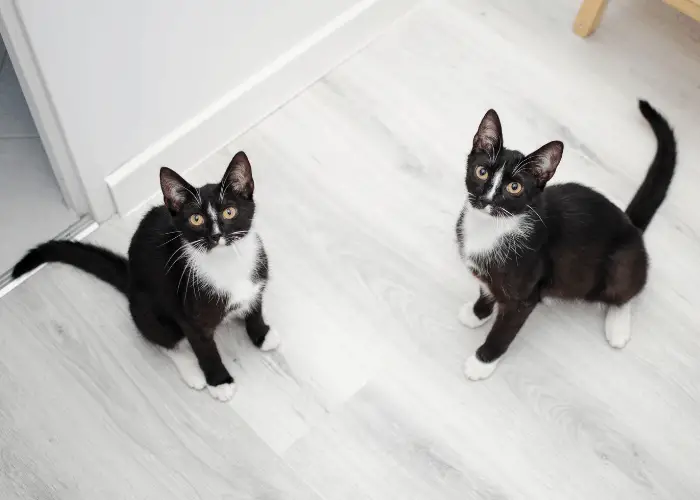
Kittens or cats who lack any training to use the litter box will still attempt to cover up their poop. They’ll use anything that it can move that’s close enough to try to cover it up.
They’ll either do that, or uselessly paw around at the surrounding floor, or even scratch at a nearby wall. Even though they’re not accomplishing anything by doing this, it’s that instinctive drive to at least try something to cover it up.
However, if you happen to own a cat who believes that it is in charge of you and the household, it may be pooping outside of the cat’s box deliberately. If not outside the box, then it will leave the waste uncovered within the box.
In this case, the whole point is to let everyone know that it’s the boss, and it’s not afraid to show it.
Boundaries
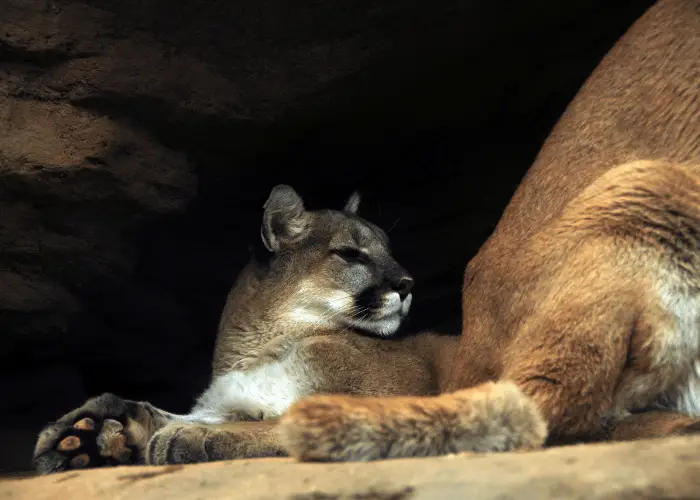
Some larger cats like mountain lions don’t bury their poop at all. In fact, they make a solid showing of it. They are solitary creatures, not traveling with, or living in a pride, like other large cats.
They leave mounds of waste deliberately for other cats to find. This tells intruding male cats that the area is occupied, and to go hunt elsewhere. The piles are also left for female cats to find, denoting that there’s a potential mate nearby.
Male domesticated cats may partake in this behavior outside, to either claim the yard as its property and warn others to stay away, let the female cats know that there’s a bachelor nearby, or both.
Cats Burying Poop as a Submissive Gesture
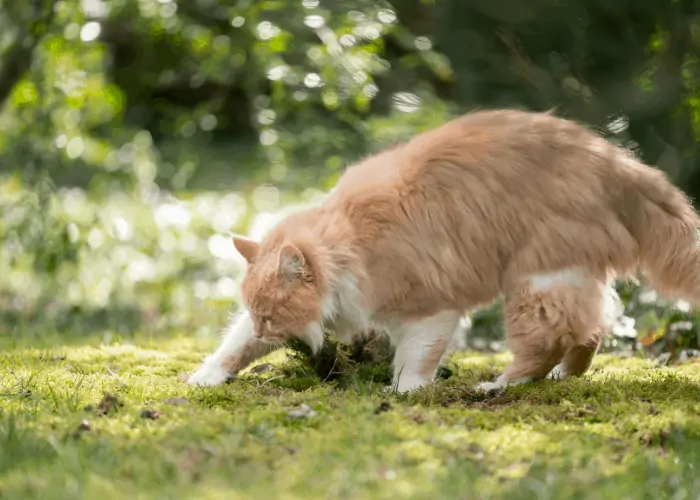
Most cats will bury their poop in the home to show submissiveness, rather than leaving it in the open as a dominant cat would tend to do. A cat who covers its poop in the litter box understands its place in the pecking order.
It understands that you are the leader of the pack, so to speak (or pride) and has no right or desire to leave its waste uncovered, or its territory marked. This is much of the same kind of behavior that was touched on above, where wild cats who don’t want to create waves in the pecking order would make sure to cover up.
Why Is My Cat Not Burying its Poop?
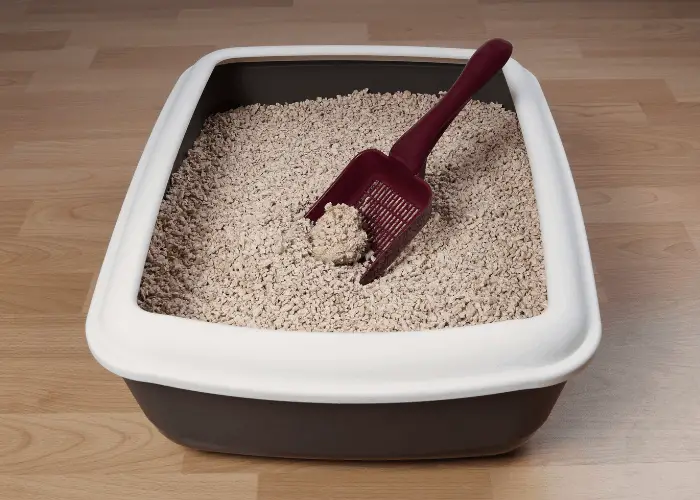
There are a handful of reasons why a cat will not cover its poop that rest outside of a show of dominance or insufficient litter training. Sometimes it can be a sign of a health issue, other reasons might be not liking the type of litter.
A Clean Litter Box
If it’s been a while since you’ve cleaned out your cat’s box, then don’t be surprised if it doesn’t cover it up. In fact, be more surprised that the cat is using the box at all.
A clean litter box is detrimental to the health of your cat, as well as the cleanliness of your home. Think about what they walk and dig through with a dirty litter box, then imagine what they’re tracking around the house.
A Wounded Paw
If a cat’s paw is wounded or sore, it will try to avoid doing anything that would agitate the paw. Digging at the litter box might understandably be an issue to a cat with a wounded paw.
A sore paw can be noticeable by how the cat is walking, whether it’s walking with or without a limp. If it doesn’t have a limp, do a more thorough inspection of the cat’s paws, checking out around the pads and between their claws.
Other Health Concerns
Other health issues can cause a cat to not use the litter box normally, among them being a urinary tract infection. If you know that your cat normally buries its poop but has stopped doing so, it might be a good time to bring your cat for a visit with the vet.
Final Thoughts
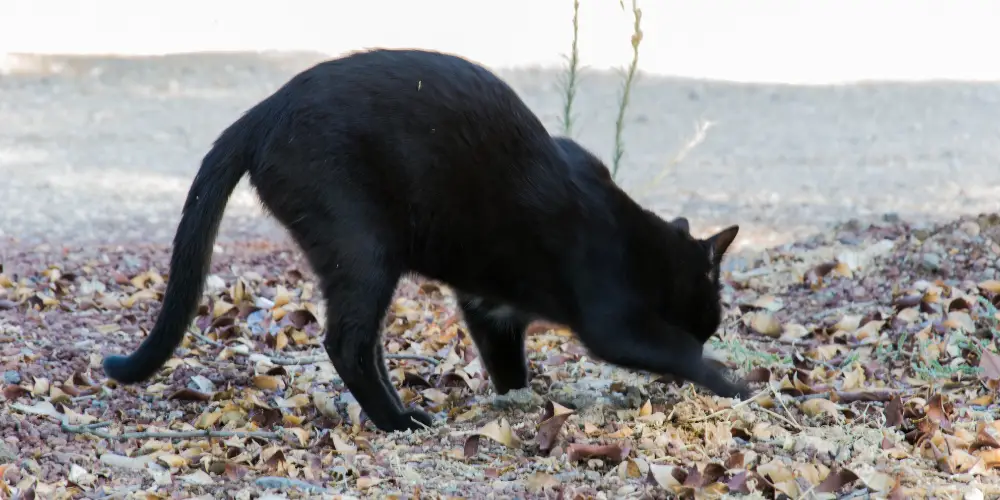
As much as we’d like to pat ourselves on the back as humans, we had nothing to do with cats deciding to bury their poop. We are the beneficiaries of it by not having to smell it or look at it, but domestication didn’t make it happen.
For some, how it handles its waste is an attribute that causes owners to prefer cats over dogs. Not having to take it out, not having to follow it around with a baggie, not having to worry about it being inside for too long when we’re away or at work, and the ease of potty training, are all benefits of having a cat over a dog.
On the other hand, cats come with all kinds of problems that dogs don’t take part in- like climbing drapes and destroying window screens to name a few.
Though we may take a cat’s potty habits for granted, knowing why it does what it does aids us as owners to identify potential problems should they arise. Cat’s box habits can tell us a thing or two if we’re paying attention- regardless of how unsightly it may be.
